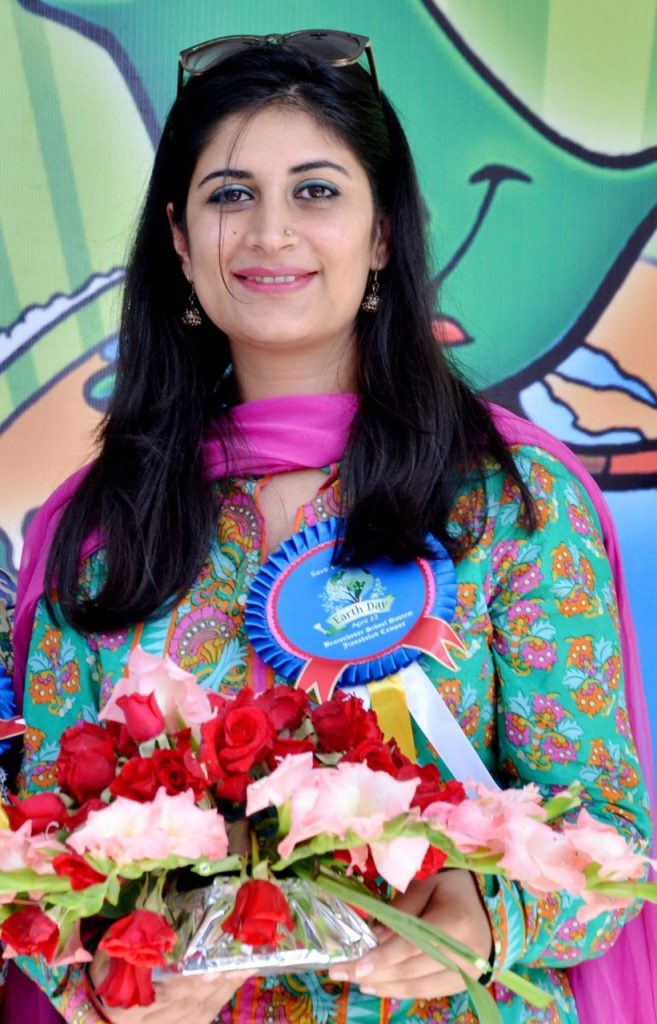Dr Abda Khalid has been awarded a two-year Marie Skłodowska-Curie Postdoctoral Fellowship and will be attached to the ICT4COP Center.

Dr. Khalid, who received her PhD from the Department of International Environment and Development Studies, Noragric in 2016, will be joining the Center this coming Fall for her research project ‘ Exploring Complex Realities Around Gender Based Violence, Multiple Legal Orders and Role of Police in Addressing GBV Cases in Pakistan and Pakistani Immigrant Community in Norway’. Dr. Khalid, who is currently Associate Professor at Comsats University Islamabad, Abbotabad Campus, is passionate about her research, and looks forward to diving deeper into issues around gender-based violence and community-oriented policing:
“The culture of Gender-Based Violence (GBV) is systemic and institutionalized in societal and familial structures in Pakistan and Pakistani families settled outside Pakistan. This violence reinforces patriarchy and imbalance power relations at every level. In my project, I am exploring how legal pluralities and legal plural orders rival in complex societies with respect to GBV and threatens or strengthens human security of men and women in their daily lives. Also, how community policing focuses on the development of a collaborative partnership between community and the police to proactively address the root-causes of gender based crimes. During the MSCA fellowship, I aim to map the complex realities, multiple legal orders and role of police in addressing GBV cases in Pakistan and in the Pakistani immigrant community in Norway. The study will unveil mechanisms that can effectively and efficiently help in preventing GBV cases.”
Abda will work at the Centre for Community-Based Policing and Post-Conflict Police Reform, NMBU, under the supervision of Associate Professor Shai Divon who has in-depth experience in community-oriented policing, development studies and security studies. She also is planning a secondment during her fellowship at the European Union Agency for Law Enforcement Training (CEPOL): “Working at CEPOL will give me a unique opportunity to work directly with international law enforcement professionals, enhancing my analytical and technical skills from the perspective of European security. My work with GBV with the South Asian Diaspora in Norway will help professionals from different backgrounds to see beyond law and legalities, and be a part of a broader network of leading professionals who might help in providing training on related issues in coming times.”
Full research abstract:
Violence occurs in all countries, rich or poor, developed or developing, irrespective of caste, creed, color, social status, wealth, urban or rural residence, or the ages of victim and aggressor. Keeping this in mind, this study is designed to understand gendered aspects of Gender based violence in Pakistan and Pakistani Families living in Norway. Despite extensive legislation and steps taken by the federal and provincial government, the plague of GBV is at rise in Pakistan and rest of the world. Interestingly, to address the GBV issue at state level, community policing has emerged as an alternative approach to conventional, top-down approach to ensure Human security. Community policing also addresses gender inclusive policing which in response provides room to address serious issues like gender based violence. Such community based approaches to policing are instrumental in addressing the sensitive issues like GBV, however, the effectiveness of these approaches in complexed contexts are under-researched and debated in recent scholarship. Similarly, it is equally interesting to understand the choices people make in legally pluralistic societies because it will provide greater understanding to reflect on how people maneuver, negotiate and choose the legal system to address GBV . At the Norwegian level, it would be very valuable to review how police works with GBV victims from immigrant communities from Pakistan .Hence, there is need to understand the gaps and challenges within the designed mechanism to curb GBV with special focus on gendered social relations, legal pluralism and why it is important for police to understand contextual complexity . Qualitative data collection method will be used to collect data both from Pakistan and Norway. Study is framed from grains from various filed of studies like Security, feminism, IR, Legal and Development Studies to ensure interdisciplinarity.


